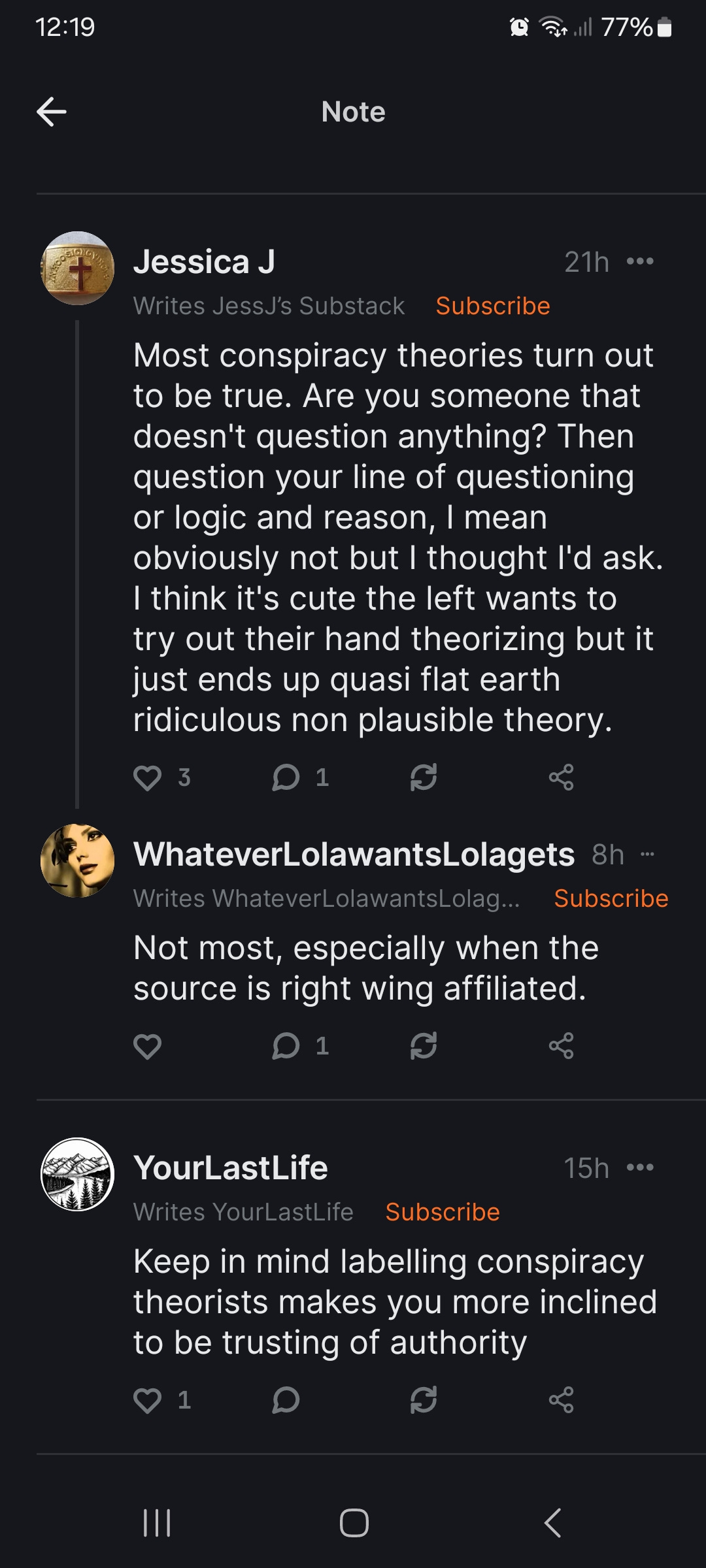
When I landed here on Substack, I was hoping to find a place to write and read about ideas and things from all over the world, free from algorithms designed to extract as many reactions as possible and keep people glued to the screen just to bombard them with ads. Substack, from this point of view, seemed to have a business model that allows its infrastructure to be sustainable without being deleterious to user interactions.
Moreover, I was looking for a platform where trolls and subtle propagandists were kept in their niches. After three months, I can say I feel quite comfortable here, even though I recognize several aspects typical of mainstream social media. For example, speaking of propaganda, I would like to show you a thread I came across some days ago.
What you can see in the picture above is something quite common online: propagandists, especially those involved in conspiracy theories, always try to make you believe that skepticism is equal to critical thinking, which turns out to be the first step toward authoritarianism. I often write about emotional manipulation in this newsletter; skepticism implies the willingness to believe or not believe in something. It is based on suspicions and stresses the lack of faith in the truth, reality, fairness, or reliability of something or someone.
Skepticism is a state of mind and by itself is manipulable.
Critical thinking, instead, is the ability to interpret, evaluate, and analyze facts and information to form a judgment or decide if something is right or wrong (not good or bad). More than just being curious about the world around you, critical thinkers make connections between logical ideas to see the bigger picture.
This attitude and approach to the world are blamed by conspiracy theorists as a synonym of narrow-mindedness, and they label rational reasoning as a denial of considering different viewpoints and ideas. The point is that with the ongoing information overload, the act of deliberately multiplying “news” or pieces of information that reasonably sound like news is the main way to saturate people's reasoning capabilities. This is the fertile ground for misinformation and disinformation as England is is experiencing in these days.
With that being said, I propose an ordered list of aspects to be checked in everyday interactions:
Self-reflection: Be aware of your own limits to ensure clarity about what is known and unknown, and explicitly express uncertainty about beliefs in an honest and consistent manner. This will help you frame news and speeches about new topics or events.
Ambiguity: Make sure that claims of fact are true, unambiguous, and comprehensive. If you come across information that fits your pre-existing views, be aware that you could be the target of someone else’s strategy. Not to mention, you have gained no added value from that information.
Slow thinking: To allow for appropriate inferences based on logic, probability, and evidence, do not jump to conclusions straight away. Critical thinkers have to connect facts appropriately. Principles of logic, probability, and the scientific method provide guidance here. Overconfidence can lead to the wrong conclusion.
This approach will help protect you from disinformation and propaganda, unless you are deliberately seeking them out.


